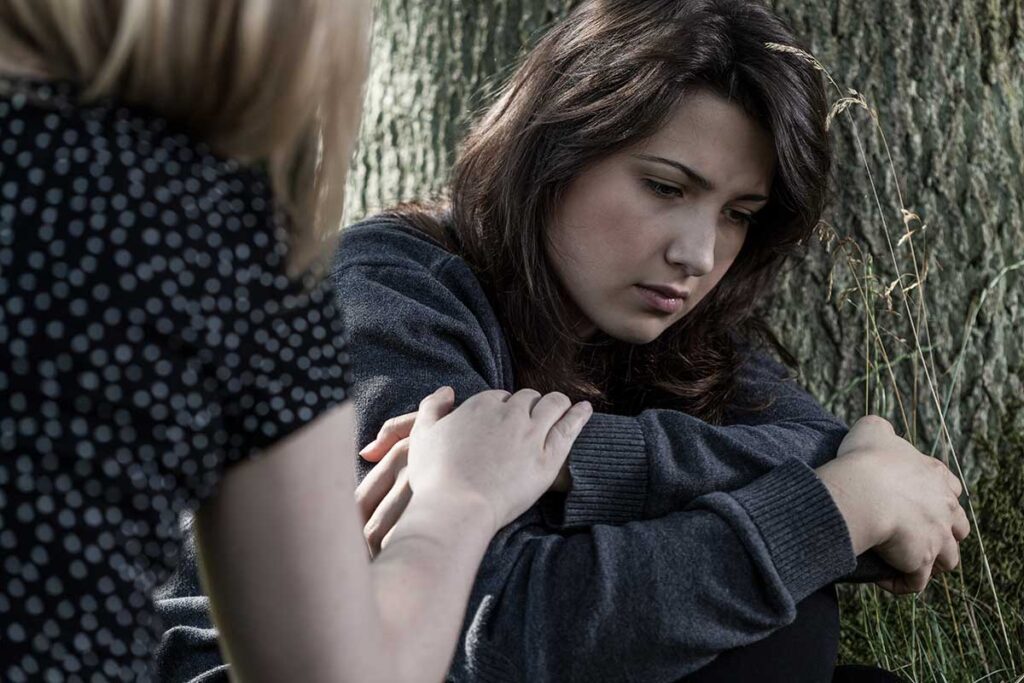Recovery does not end when a treatment program is complete. It’s important to know the signs of relapse so that you can take steps to prevent it. It’s essential to recognize potentially triggering situations. Insight Recovery Center offers relapse prevention therapy in North Carolina designed to ensure that individuals continue their recovery journey.
Contact Insight Recovery Center at 828.826.1376 or contact our team online to learn more about relapse prevention. We can help you find the best action plan for preventing relapse and returning to recovery.
Common Causes of Relapse
It’s important to note that relapse is not a failure or a sign of weakness. Instead, it is a common response to triggers that can be difficult to manage without the proper support and guidance.
They are many outside forces at work when relapse occurs. Everything can go smoothly in one’s recovery process, and suddenly, something happens. It could be a personal crisis, an undiagnosed mental health disorder, or a personal setback. Here are some common causes of relapse:
- Being around drug or alcohol use
- A stressful work environment
- Returning to places that remind them of doing drugs or drinking alcohol
- A movie or TV show that has scenes depicting substance use
- Overhearing someone describe a positive substance use experience
- Anxiety, depression, or fear
- Experiencing difficult life events
It’s only natural for an individual to experience these triggers during their recovery journey. That’s why Insight Recovery Center offers an aftercare program to help individuals manage stress and identify triggers. Through our program, individuals can learn how to cope with such triggers and remain committed to their sobriety.
Signs of Relapse
While most people battling the urge to return to using alcohol or drugs will flirt with relapse, if not outright relapse, there are signs that they may be heading in that direction. Here are ten signs of relapse:
- Altered physical appearance
- Being defensive
- Exhibiting compulsive behaviors
- Mischaracterizing old habits
- Stealing or asking to borrow money from friends or family
- Compulsive behavior
- Being uncharacteristically impulsive
- Returning to places where they took part in addictive behavior
- Mood changes
- Having unrealistic expectations
It’s important to get help if you start to see any of these signs in yourself or someone you know. Everyone is different, and so are their needs in recovery.
How Relapse Prevention Helps
Relapse prevention is an essential part of the recovery process. It allows individuals to recognize and get ahead of potentially harmful triggers, which can help them stay sober and avoid a full-blown relapse.
Some tools taught in relapse prevention include:
- Identifying triggers – Being aware of situations and feelings that may trigger a relapse can help you stay ahead of them.
- Developing a support network – Having reliable people to talk to and rely on for help can make relapse prevention easier.
- Mindfulness practices – Learning mindful breathing, meditation, and other relaxation techniques can help you manage stress and other triggers.
- Developing healthy coping skills – Learning how to handle difficult emotions without resorting to drugs or alcohol is key to prevention of relapse.
- Participating in meaningful activities – Keeping yourself busy with activities that are meaningful and engaging can help distract you from relapse.
At Insight Recovery Center, we understand that relapse prevention is a lifelong process. Our aftercare program provides individuals with the skills, support, and resources they need to remain sober long-term.
What Is Relapse Prevention Therapy?
Relapse prevention therapy (RPT) is essential for successful recovery as it equips individuals with the skills and strategies necessary to manage cravings and avoid high-risk situations. By focusing on understanding triggers and developing coping mechanisms, RPT empowers clients to anticipate potential setbacks. This proactive approach not only fosters self-awareness but also instills confidence in their ability to navigate challenges.
Additionally, engaging in relapse prevention therapy helps to reinforce the gains made during treatment, facilitating long-term sobriety and reducing the likelihood of relapse. Ultimately, the therapy serves as a vital component of a comprehensive recovery plan, promoting resilience and sustainable change.
Moreover, RPT encourages individuals to create a strong support network, which is crucial for maintaining accountability and encouragement. By participating in group sessions or one-on-one counseling, clients can share experiences and learn from one another, further enhancing their recovery journey.
Learn Relapse Prevention Tools at Insight Recovery Center
The best way to avoid relapse is by learning the tools and strategies necessary to manage triggers and stressful situations. At Insight Recovery Center, our relapse prevention program in North Carolina provides the structure and guidance needed to ensure individuals stay committed to their recovery.
Call Insight Recovery Center at 828.826.1376 today or use our online contact form to learn more about our relapse prevention therapy and how we can help you stay on track with your recovery goals.

